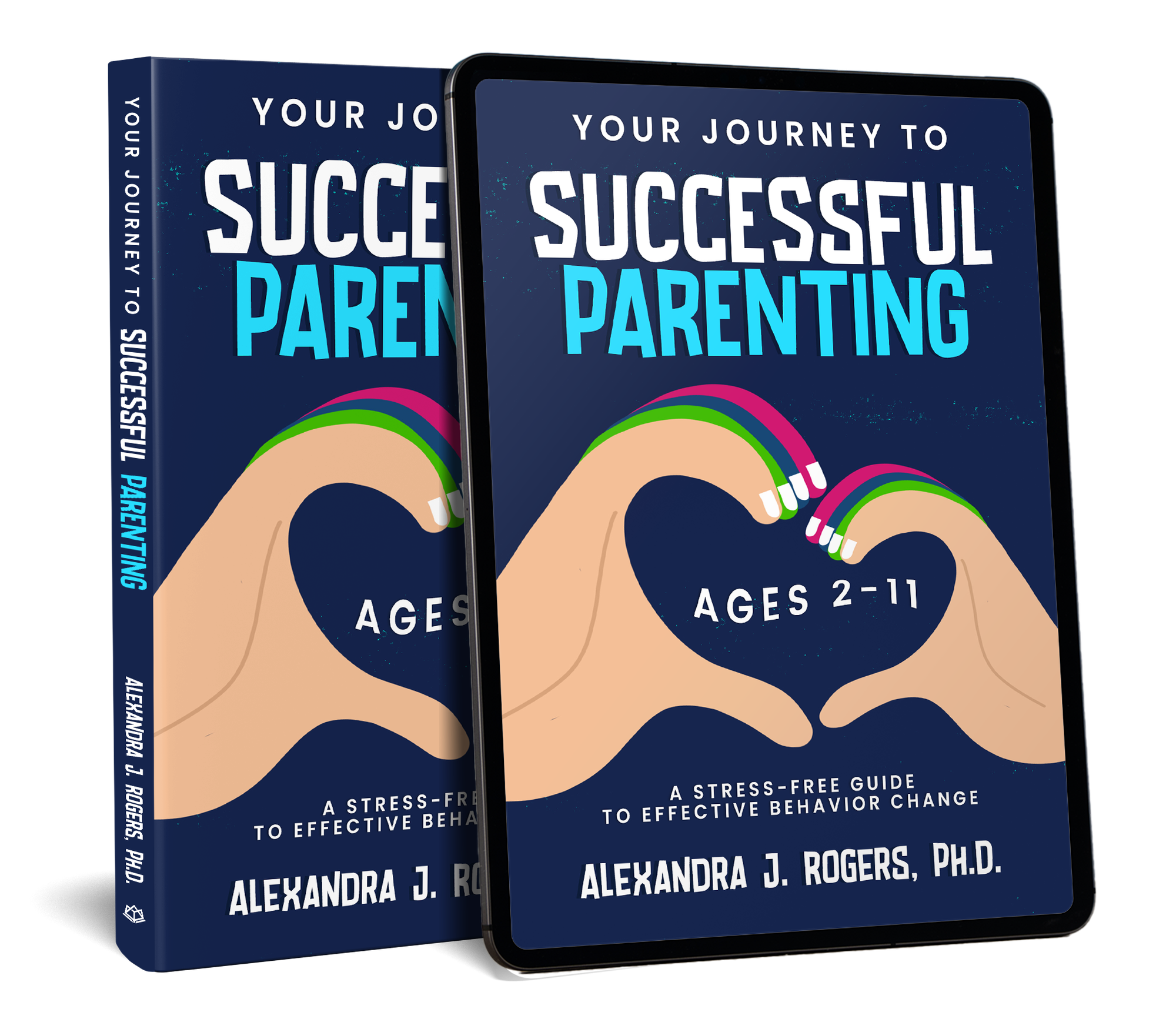Autistic authors reveal what it’s like to grow up on the spectrum—helping parents better understand, support, and connect with their autistic children.
Read MoreYour Guide to Stress-Free Parenting
Expert Advice from
Dr. Alexandra Rogers
“The comprehensiveness of Rogers’ advice is impressive and deeply involving, and the book as a whole makes for engrossing reading—even for those who’ve never spent a single hour around a moody, temperamental child.”
Kirkus Review (Recommended)
“While compact, this guide is admirably thorough, pragmatic, and informative, sharing a wealth of Rogers’s own tried-and-tested techniques.”
BookLife Review (Editor’s Pick)

About


If you’re experiencing a parenting challenge or worried about your children, you’ve landed in a supportive place. Seeking therapy is crucial for severe issues, but access can be a hurdle due to lack of insurance, money, or distance. You may find answers to your questions and tips on how to work with your children in My book Your Journey to Successful Parenting, and the articles on this website.
I am a retired California clinical psychologist with 30 years of experience. Many people facing situations similar to yours sought my help. The articles on this site contain stories about people’s struggles and specific recommendations.
As a cognitive psychologist, I believe that your thoughts trigger your actions and emotions. If you can clean up your thinking, you can change your behavior and emotional reactions. Understanding what is happening can relieve some of your worries about what you are experiencing. The articles on this website aim to shed light on what is happening and provide tips on how you can feel better.
But this isn’t just my space—it’s ours. Your feedback is invaluable. If the book or article was clear and helpful, let me know. If something is unclear, please ask me about it. Your input guides the improvement of this resource, ensuring it’s as helpful as possible.
Remember, you’re not alone on this journey. Your well-being matters and your feedback is crucial. Take the time to explore the articles and let me know how I can improve this site for you. Your input is what makes this resource truly valuable.
Articles
This blog post delves into the critical topic of experiencing intrusive thoughts during postpartum depression, offering insights into understanding these challenges and the importance of seeking help. It provides valuable resources and guidance for individuals navigating this sensitive period, emphasizing the significance of support and self-care for mental well-being.
Read MoreLearn how in-person support groups can create a sense of community and understanding for individuals and families affected by autism.
Read MorePrevent and stop tantrums and meltdowns.
Read MoreExamples of impulsive behaviors or thinking with tips on how to stop oneself from acting on them. Simple techniques that you can implement yourself.
Read MoreExamples of how to stop screaming arguments due to thought processing speed differences, habits, displaced anger, and power struggles.
Read MoreThe science behind why exercise is beneficial for alleviating symptoms of depression: the function of muscle wasting and mitochondria.
Read MoreHow to apply and interview for your first job. If you don't like the job, what to do about it, and how to get another job.
Read MoreSigns and symptoms of OCD, details and examples.
Read MoreCONTACT
TABLES
Table 1. Parental Reactions
Informational PDF for Your Journey to Parenting Success, Ages 2-11
Table 2. Typical Parental Reactions to Misbehavior
Informational PDF for Your Journey to Parenting Success, Ages 2-11
Table 3 Example of Desired Behaviors, Possible Points, and Points earned
Informational PDF for Your Journey to Parenting Success, Ages 2-11
Table 4. Example of Chart with Five Behaviors
Informational PDF for Your Journey to Parenting Success, Ages 2-11
Table 5. Example of Picture Behavior Chart
Informational PDF for Your Journey to Parenting Success, Ages 2-11
Table 6. Emotional Parent Reactions
Informational PDF for Your Journey to Parenting Success, Ages 2-11
Table 7. Approxiamte Times for Slow Breathing
Informational PDF for Your Journey to Parenting Success, Ages 2-11
Table 8. Turning Negative Statements into Positive Statements
Informational PDF for Your Journey to Parenting Success, Ages 2-11











